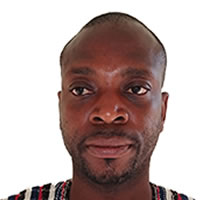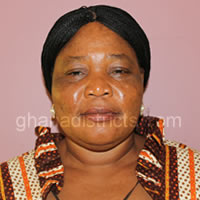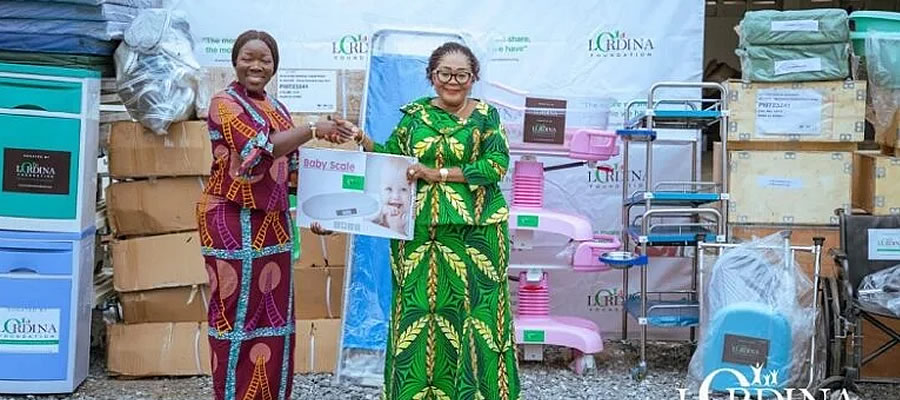

The Local Government System
The development process in the Techiman North District depend very much on the various institutional structures that include state institutions, traditional governance structures, the private sector and non-governmental organisations including community based organisational.
The Techiman North District Assembly is the overall governance authority and also responsible for development of the whole District. Under local Government Act, 1993 (Act 462) the Assembly has deliberative, legislative and executive functions. It is the highest political administrative and planning authority at the District level. The current Techiman North District has been part of Techiman Municipal Assembly before its establishment. Techiman North District Assembly was established under legislative Instrument (L.1.2095) of 2012 as a District Assembly. It is composed as follows:
i. The District Chief Executive
ii. 25 Assembly Members elected by universal adult suffrage in the electoral areas into which the Assembly is divided of which three (3) are women
iii. 11 other members appointed by Government including two (2) women. Although the Local Government Act 462 requires that at least 30% of the appointed members must be women, Government appointees are made up of 2 women i.e. only 18.2 %.
iv. The District has only one constituency with one Member of Parliament (MP).
The District Chief Executive as the representative of the Central Government in the District and also chairs the Executive Committee of the Assembly, which is charged with the day-to-day running of the Assembly.
The Executive Committee has other sub-committees working up to it, namely:
• Finance and Administration
• Works
• Social Services
• Development Planning
• Justice and Security
• Agriculture and Environment
• Disaster Prevention and Management
These sub-committees deliberate on issues in great detail and its recommendations are submitted to the executive committee, which in turn submits them to the General Assembly for ratification
Under Act 462, departments under the Techiman District Assembly are expected to be integrated into eleven departments as provided under the law; however, this is yet to be fully operational.
The eleven (11) recognized departments are namely:
• Central Administration
• Finance Department
• Education Youth and Sports Department
• Health Department
• Agriculture Department
• Community Development and Social welfare Department
• Physical Planning Department
• Natural Resource Conservation( Forestry Game and Wild life) Department
• Works Department
• Industry and Trade Department
• Disaster Management Department
The inputs of these departments into the running of the Assembly are visible at the sub- committee level where the various heads, as ex-officio members of the relevant sub-committees and Assembly, help fine tune decisions. The District Co-ordinating Director coordinates all activities of the departments to ensure harmony and avoid duplication of efforts. In the performance of its functions however; the Assembly is limited by the following problems among others;
• Inadequate Office accommodation
• Inadequate staff residential accommodation
• Inadequate office equipment and machinery
• Inadequate office accommodation
• Inadequate logistics, especially for data management, monitoring and evaluation.
• Inadequate qualified personnel in some departments
Figure 1.10 illustrates the current organizational structure of the Techiman District Assembly.
Substructures of the Assembly
The Assembly is sub-divided into five (5) Area Councils namely; Tuobodom, Offuman, Bouyem, Aworowa and Krobo. The effective operations of the Area Councils have been hampered by lack of offices, personnel and logistical support. None of the five (5) Area Councils have permanent offices. There are 36 Unit Committees comprising 5 members each with a total membership of180.
However not all the committees have full complement of members nor are functional. These gaps in the democratic structures imply that the District Assembly members must play a key role in ensuring effective information flow between the Assembly and the grassroots. The evidence on participation and consultation from the field indicate that there exist large information and communication gaps
Identified problems that adversely impact on good governance in the District include;
• delays in executing Assembly decisions
• low involvement in project supervision by Assembly persons and other stakeholders
• Ineffective functioning of Area Councils and Unit Committees
• Inadequate logistics, remuneration and motivation for Area Council Staff
These issues need to be seriously addressed to enhance good governance.
Traditional Authority
Studies and experience show that traditional the authority have great influence in the traditional society. Traditional authority, it was observed, plays a very important role in the local government system of the District and can therefore be regarded as an integral part of the decentralization process. In the rural areas, particularly, they command the respect of large numbers of their people. Allegiance of the people to traditional authority appears stronger, than to formal political authorities.
Traditional authorities therefore have a crucial role to play in facilitating government policies and mobilizing their people for development. Another key role of traditional Authority is the issue of support for land administration reform .With a large migrant farmer population in the District, the issue of security of land tenure and protection of the vulnerable and excluded becomes very crucial. The role of traditional authority in this context holds positive contribution to economic and social transformation. Partnership with traditional authority could therefore provide a mechanism for improved consultation and co-operation.
Participation and Consultation
Participation has been defined as the process through which the individual plays a role in the political, economic and social life of his or her community or country. The individual contributes to the setting up of general goals for society and is aware of the available opportunities that enable him or her to suggest the best solutions for achieving the goals.
Participation in community level decision making
Participation is a process by which people are enabled to become actively and genuinely involved in defining the issues of concern to them, in making decisions about factors that affect their lives, in formulating and implementing policies, in planning, developing and delivering services and in taking action to achieve change (Breuer, 19 99).
Participation can be viewed as community development as a process by which effort of the people at grass root level is united with those of the government (Ntini, 2006).
The incentives for citizens to participate in a given activity are deeply rooted in the peculiar physical, cultural, political and socio-economic circumstance in which they find themselves at a given time. Citizen’s participation in the District depends among others on the incentives provided for them to participate as well as other factors like;
• The outcome of previous experience with participation in government sponsored activities.
• The political, religious affiliation or in some communities chieftaincy inclination and
• Conformity of the institution for channeling participation through recognized existing community institutions.
Communication channels are therefore vital for effective participation.
The use of resources requires that appropriate financial procedures and systems are put in place to ensure efficiency. Additionally, efficient use of resources requires that projects and programmes undertaken by the District Assembly are beneficial and relevant to the people and consultation and participation of the intended beneficiaries can ensure efficiency and effectiveness in resource allocation. Participation also serves as an important monitoring and accountability mechanism.
Date Created : 11/21/2017 3:20:05 AM












 facebook
facebook
 X
X
 Youtube
Youtube
 instagram
instagram
 +233 593 831 280
+233 593 831 280 0800 430 430
0800 430 430 GPS: GE-231-4383
GPS: GE-231-4383 info@ghanadistricts.com
info@ghanadistricts.com Box GP1044, Accra, Ghana
Box GP1044, Accra, Ghana